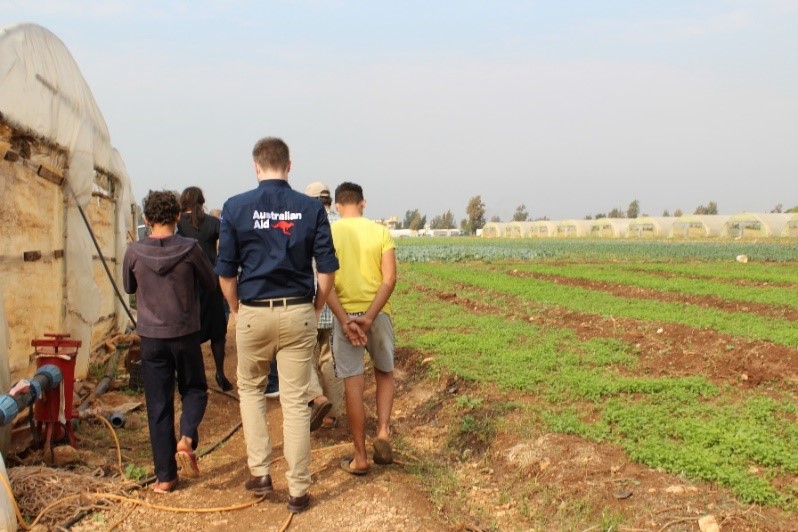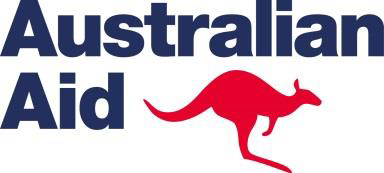The Australian Embassy’s Direct Aid Program (DAP) 2025-2026 funding round is now closed.
Direct Aid Program
The Direct Aid Program (DAP) of the Australian Embassy is a flexible, small grants program which focuses on relieving humanitarian hardship and advancing developmental objectives in Lebanon and Syria through projects that are consistent with Australia’s international relations and public diplomacy objectives. Each year, the Embassy’s DAP committee assesses proposals for small development projects from individuals, community groups and non-governmental organisations engaged in development activities on a not-for-profit basis.
Guidelines
For more information on our program, please read the DAP Guidelines.
Past Projects
To look at the projects the Embassy funded in 2024-2025, please click here
To look at the projects the Embassy funded in 2023-2024, please click here
To look at the projects the Embassy funded in 2022-2023, please click here
To look at the projects the Embassy funded in 2021-2022, please click here
To look at the projects the Embassy funded in 2020-2021, please click here
To look at the projects the Embassy funded in 2019-2020, please click here
To look at the projects the Embassy funded in 2018-2019, please click here
To look at the projects the Embassy funded in 2017-2018, please click here
To look at the projects the Embassy funded in 2016-2017, please click here
To look at the projects the Embassy funded in 2015-2016, please click here
To look at the projects the Embassy funded in 2014-2015, please click here
To look at the projects the Embassy funded in 2013-2014, please click here
To look at the projects the Embassy funded in 2012-2013, please click here
Australian Government’s Humanitarian Assistance 2021-2023

Lebanon is experiencing an unprecedented financial and economic crisis, which ranks as one of the most severe globally since the mid-19th century. Today, 3.2 million people living in Lebanon are in need of humanitarian assistance. The World Bank has estimated that more than half of the Lebanese population is living below the poverty line. Almost nine in ten displaced Syrian households are living in extreme poverty, while poverty levels are also rising dramatically among Palestine refugee populations. The COVID-19 pandemic and the devastating Beirut port explosion have compounded Lebanon’s challenges.
Meanwhile, the conflict in neighbouring Syria has created one of the biggest humanitarian crises in the world. More than a decade of war has left over 14.6 million people in Syria (6.5 million children) in need of humanitarian assistance, an increase of 1.2 million since 2021. This includes 7 million internally displaced people within Syria. A further 5.6 million Syrians are registered as refugees in neighbouring countries, including Lebanon, Jordan, Turkey, Iraq and Egypt. Over the past eleven years, Lebanon has been a generous host, welcoming an estimated 1.5 million displaced Syrians [the highest number of refugees per capita in the world].
Since 2011, the Australian Government has provided over AU$500 million in humanitarian assistance to support people in need in Lebanon, Syria and Jordan. This includes over AU$120 million to Lebanon since 2017. In Lebanon, our funding supports vulnerable Lebanese communities and Syrian refugees by providing humanitarian assistance, protection services and livelihood opportunities. Funding under this investment will continue through 2022 and 2023 and is delivered through UN agencies, international and local humanitarian organisations and partners.





![]()

Publications
21 June 2022: Australia Partnered With UN Women To Provide $1.7M In Aid For Vulnerable Women In Lebanon
08 October 2018: Removing Barriers: The Path Towards Inclusive Access - July 2018 (Humanity & Inclusion)
Videos
Plan International & International Medical Corps
Social Media
 @SafirAustralia | @AusHumanitarian
@SafirAustralia | @AusHumanitarian
 Australian Embassy – Beirut, Lebanon
Australian Embassy – Beirut, Lebanon

